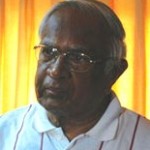How Our Democracy Has Changed
The recent provincial election results show that the Government of President Rajapakse cannot be shaken. Is it due to its popularity with the people and if so what are the causes of the popularity. Are there other factors as well? TheNorthern Provincial Council of course showed that the methods employed in the South to win popularity do not work to win the votes of the Tamil people. What are these methods?
Firstly the electoral system has been completely transformed. The rationale behind the Proportional Representation system is that it is based on lists submitted by the Political parties. The names denoted a ranking as well, under the original system introduced by President J.R. Jayawrdene. But President Premadasa changed it to determine the first three winners on popular preferences. But the winners under the PR system were debarred from changing the party which nominated them and on which they were elected. If they did so they would lose their seat. This was logical and necessary since the people voted for the party and it was the party that nominated them for election. The entire rationale for the system as democratic depended on the prohibition of cross-over to any other party from the party ticket on which the candidate was appointed. The first erosion of the principle was the modification by the introduction of the preference vote. It looks democratic prima facie but it was not; for the principle of voting for the party rather than the candidate was undermined. Chief Justice Sarath Silva destroyed whatever was left of electoral democracy by permitting the crossing over of the winners to other parties.
Our political parties do not have any ideology unlike in the western democracies. They are factions tied by family loyalties or class interests. Some families are traditionally SLFP supporters while others are UNP supporters. As for the ethnic minorities the Tamils always stood apart and had their own parties although a few Tamils were co-opted to the major parties mainly by the offer of perks- a powerful incentive in Sri Lankan politics. The Estate Tamils too had their own political party linked to the trade union of Estate workers. The Muslims joined the two major parties among the Sinhalese. So did the Christians. With the introduction of the PR system the way was open for the minorities to win seats on the basis of their ethnic or religious affiliation. So PR promoted ethnic and religious basis of affiliation to politics and political parties. It has probably also ensured permanent coalition governments.
With the abolition of the cross-over provision the stage was set for the winners to be wooed to join the party obtaining a majority at the polls. In the case of the presidential election of 2007 the LTTE banned Tamils from voting and thereby deprived the UNP of winning. The later election was distorted by the UNP supporting Sarath Fonseka as a common candidate.
What of the future? The ethnic and religious minorities traditionally favored the UNP rather than the SLFP which stood for the supremacy of Sinhala Buddhist majority over the other communities


